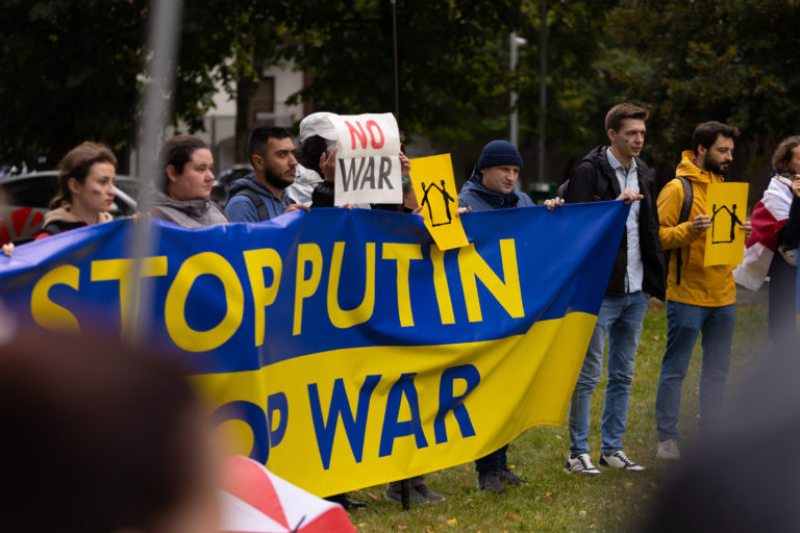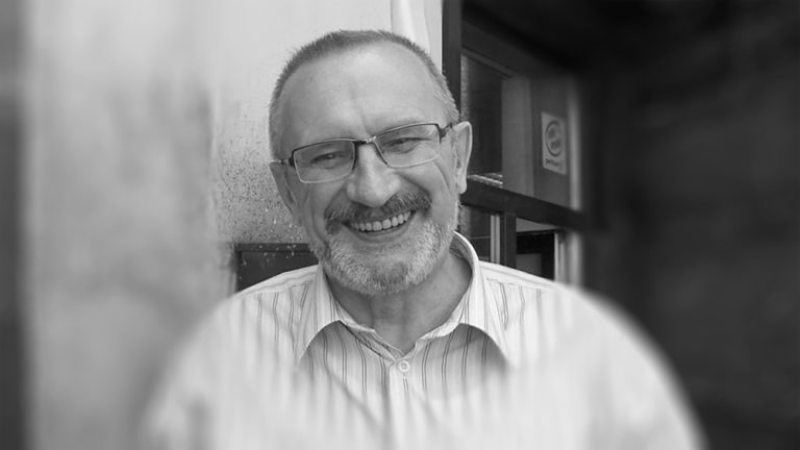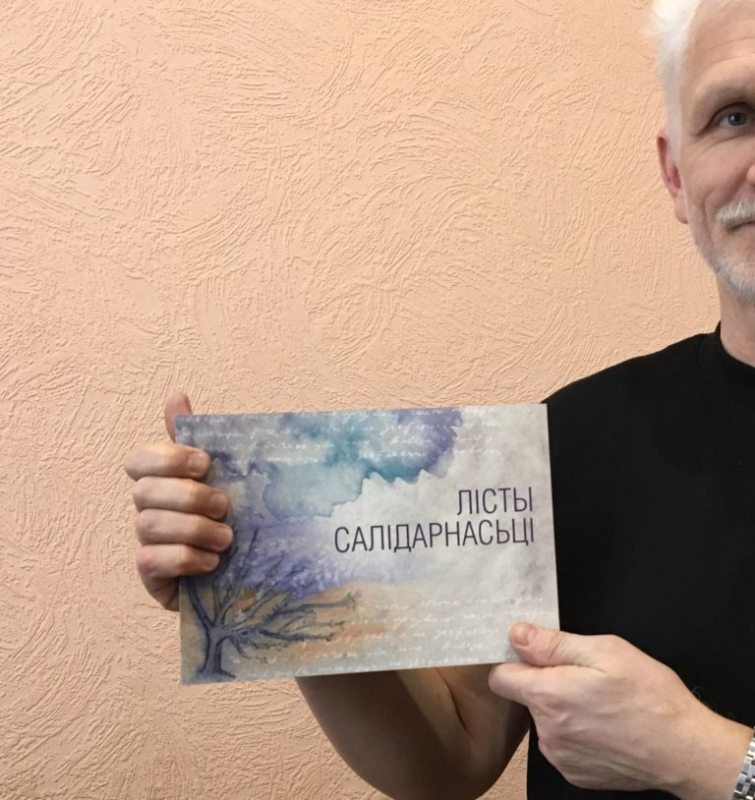Ane Tusvik Bonde: "I will never forget the powerful feeling of the Network coming together in solidarity"
Ane Tusvik Bonde joined Amnesty Norway in September 2023 following almost two decades with the Human Rights House Foundation. In this interview, Ane shares her reflections about the Network of Human Rights Houses, the human rights situation, and the power of solidarity.
What will you take away from your time at HRHF and with the Network of Human Rights Houses?
I will never forget the powerful feeling of the Network coming together in solidarity. I felt it last year in Vilnius in September 2022 when we jointly demonstrated in support of Ukraine and in solidarity with imprisoned colleagues in Belarus in front of the Russian embassy.

- September 2022: The Network of Human Rights Houses demonstrates in support of Ukraine and Belarus in front of the Russian embassy in Vilnius. The demonstration was co-organised by Human Rights House Foundation, Viasna, Belarusian Association of Journalists, Belarusian Helsinki Committee, and the Belarusian Human Rights House.
I felt it when we walked in the solidarity march from the parliament to the MFA in Oslo in 2015 highlighting portraits of imprisoned and killed defenders. The power of standing together silently side by side at international events at the OSCE and the Council of Europe wearing t-shirts with portraits of Ales Bialiatski and later imprisoned Azerbaijani colleagues so no one in the room could ignore their absence.
Sometimes we can be too focused on the situation and not take the time to be with people. I met Ales Bialiatski in Warsaw after his release from prison for the first time. I still regret to this day that I had a return flight that night and I was unable to celebrate his birthday that evening when he asked me to stay. I wish I had rescheduled it. We have to take time for these moments when we can be together.
How has the human rights situation changed during your time at HRHF?
Sadly, the situation for human rights defenders and human rights has become worse across the Network. Throughout the years, we have experienced the closing of civic space and the emergence of ill democracies in many countries across the Western Balkans and Eastern Europe.
We saw in 2006 how important it was to establish, alongside Belarusian partners, the Belarusian Human Rights House across the border in Lithuania when gatherings inside Belarus became too dangerous. The tools of repression that the Belarusian colleagues faced so early, were later adopted by other authoritarian leaders.

- Barys Zvozskau, the late founder of the Belarusian Human Rights House which adopted his name following his death in June 2012.
I remember how Barys Zvozskau, the founder of the Belarusian Human Rights House, secretly trained young Azerbaijani activists when he visited Baku on how to cope under interrogation. The Belarusian authorities were ahead of Azerbaijan when it came to repressive tools back then, but sadly, these young activists in Azerbaijan soon made use of this training as the authorities became increasingly harsher towards civil society and dissenting voices.
Can you share your thoughts on our imprisoned colleagues in Belarus?
In prison, they take away all the things that make you human. The smallest gesture of solidarity from the outside can bring hope – even just a short greeting or an update on the simple things in life – these glimpses of the outside bring life.
It’s these simple things in life that our imprisoned colleagues are longing for in prison. We must take the time to write to them. Even when we have no guarantee that they get the postcards.
After his release in August 2023, the Belarusian human rights lawyer Leanid Sudalenka of Viasna said he received several thousand postcards at the detention centre – this really matters. He says when they put him in isolation and the postcards stopped, what helped him was that he knew that people were still writing.
Also, postcards and letters are an instrument for protection. Even if the postcards are withheld from prisoners, the guards read them and know that many people care about this person and many people are watching what happens to them.

- “Ane sent this card to me while I was in prison. She drew it herself. The drawing became the cover of my book ‘Letters of Solidarity’” – Ales Bialiatski.
The last time that Ales Bialiatski was in prison, I made a watercolour painting for him and he told me that even the texture of the paper was so important for him to feel. Like the touch of the real world inside his prison cell.
In September 2023, Ane Tusvik Bonde joined Amnesty International Norway as a Senior Advisor focusing on the individuals at risk in Eastern Europe and Central Asia. This follows almost two decades with Human Rights House Foundation, where she has played an instrumental role in supporting existing Human Rights Houses, strengthening regional Networks and protection work, and contributing to the Network expansion.

















